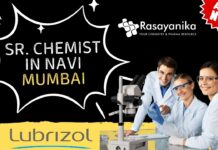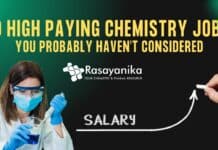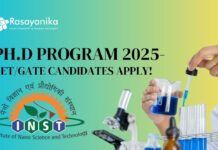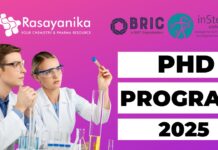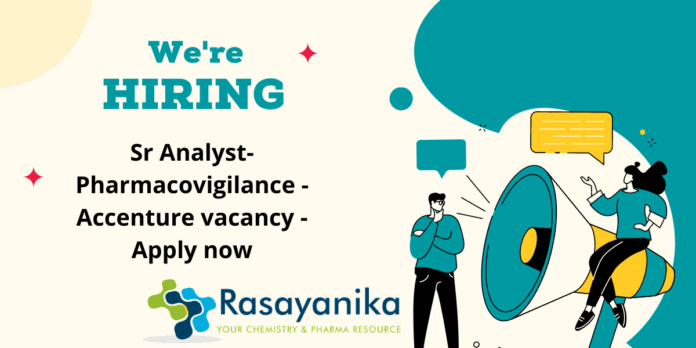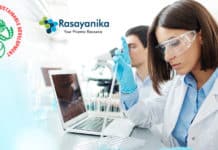Accenture is a global professional services company with leading capabilities in digital, cloud and security. Combining unmatched experience and specialized skills across more than 40 industries, we offer Strategy and Consulting, Technology and Operations services, and Accenture Song— all powered by the world’s largest network of Advanced Technology and Intelligent Operations centers. Interested candidates go through the below details and apply for BPharm/MSc Pharmacovigilance job.
JOB NO. : 273375
Designation: Management Level – Senior Analyst
Job Location: Bengaluru
What would you do?
You will be aligned with our Pharmaceuticals Processes vertical and help us with the processes to collect, monitor, research, assess and evaluate information on the adverse effects of medication with a view to identifying new information about hazards associated with medicines and consequently, prevent harm to patients. It also deals with the reviewing and resolving of discrepancies identified by the system or through manual checks as per guidelines. Employees under this span can also be responsible for a number of activities related to the design, development, and maintenance of Clinical Database objects. You will be part of a dynamic Pharmacovigilance team with array of capabilities ranging from detection, assessment, understanding and prevention of adverse effects or any other
medicine/vaccine related problem following Good Pharmacovigilance Practice (GVP) per client SOPs and applicable global regulatory requirements (Individual Case Safety Reports) to working on various aspects of Aggregate reports such as planning, authoring, reviewing and publishing of PBRER, PSUR, DSUR, PADER, Addendum to clinical overview (AdCO), Risk Management Plan (RMP), Signal detection and validation reports (SDVR), Cosmetovigilance Safety Reports (CoSR). The Pharmacovigilance team is also responsible for authoring and reviewing clinical documents such Protocols and amendment, Investigator Brochure, Clinical Study Reports (CSR), Synoptic/Abbreviated CSR, Safety Narratives, Clinical Overview/abbreviated Clinical Overview. In Medical Affairs, you will have to design, develop and deliver business solutions related to the medical affairs group of pharmaceutical companies, including thought leadership development, medical publications, education and information, medical grants, advisory boards and advocacy, regulatory review and approval of pharmaceutical drugs and perform publishing and quality control tasks on submission components.What are we looking for in a BPharm/MSc Pharmacovigilance job?
- Ability to work well in a team Adaptable and flexible Agility for quick learning Commitment to quality Detail orientation
- Educational and Experience Requirements: Minimum of Bachelor’s degree in Health Sciences; Bachelor’s Degree in Life Science with relevant Pharmacovigilance experience A minimum of 1 years’ experience in pharmaceutical or clinical research preferred.
- Knowledge of medical terminology including knowledge of applicable dictionaries like MedDRA and WHO-Drug Good medical writing skills Good Communication Skills Analytical Ability
Roles and Responsibilities
- Prioritise case processing activities for ICSRs in accordance with project guidelines, Regulatory due date and TAT SLAs and KPIs.
- Processing and evaluation of Individual Case Safety Reports Consistent data entry and processing from source documents, adhering to timelines and quality.
- Confirm accurate and consistent coding of medical history, drugs and adverse event terms.
- Assess adverse event reports for seriousness, causality and expectedness as per applicable labeling, consulting the Medical Reviewer whenever needed.
- Alert the Medical Reviewer of potential safety issues and assist the Medical Reviewer in monitoring the safety profile of product as appropriate.
- Determine if any additional information is needed for clarification, or if any follow-up is necessary, and take all relevant steps to obtain any additional/missing information as stated in the relevant Project SOP.
- Archive all communications/clarifications related to the Case in the Global Safety Database.
- Initiate and handle case deletions/ nullification as appropriate. To participate in audits or inspections. Open to get trained and moved across roles based on business requirement.
- Training and mentoring to new associates. Authoring of process documents.
Qualifications: Bachelor of Pharmacy/MSc
Years of Experience: 5 to 8 years
Skill required for BPharm/MSc Pharmacovigilance job : Pharmacovigilance – Pharmacovigilance & Drug Safety Surveillance
Hi there, we are providing some of the expected interview questions and answers here. You can prepare the following once you applied for BPharm/MSc Pharmacovigilance job. All the best for your interview!!!
Question: Can you describe your experience in pharmacovigilance and drug safety surveillance?
Answer: I have been working in the field of pharmacovigilance for the past 5 years, focusing specifically on drug safety surveillance. In my role, I have been responsible for collecting, monitoring, researching, assessing, and evaluating information on adverse effects of medications. I have extensive experience in identifying new information about hazards associated with medicines and taking necessary steps to prevent harm to patients. I am well-versed in following Good Pharmacovigilance Practice (GVP) per client SOPs and applicable global regulatory requirements. Additionally, I have worked on various aspects of aggregate reports, signal detection and validation reports, as well as authoring and reviewing clinical documents such as protocols, investigator brochures, and clinical study reports.
Question: How do you ensure accuracy and quality in your pharmacovigilance work?
Answer: Accuracy and quality are paramount in pharmacovigilance to ensure patient safety and regulatory compliance. To ensure accuracy, I pay close attention to detail when processing individual case safety reports (ICSRs) and entering data from source documents. I carefully code medical history, drugs, and adverse event terms, following standardized guidelines and dictionaries such as MedDRA and WHO-Drug. I assess adverse event reports for seriousness, causality, and expectedness based on applicable labeling and consult with medical reviewers when needed. I also prioritize case processing activities based on project guidelines, regulatory deadlines, and key performance indicators (KPIs). Additionally, I actively participate in quality control activities, such as audits or inspections, to maintain high standards of quality in my work.
Question: How do you handle evolving regulatory requirements in pharmacovigilance?
Answer: Regulatory requirements in pharmacovigilance are dynamic and continuously evolving. To stay updated, I regularly monitor regulatory guidelines and ensure compliance with the latest standards. I actively participate in relevant training programs, webinars, and conferences to enhance my understanding of changing regulations and best practices. I also maintain a network of professional contacts within the industry and leverage resources such as regulatory intelligence databases. By proactively staying informed and adapting to regulatory changes, I ensure that our pharmacovigilance processes remain aligned with current requirements.
Question: How do you contribute to a collaborative and effective team environment in pharmacovigilance?
Answer: Collaboration and teamwork are crucial in pharmacovigilance to effectively manage adverse event reporting and safety monitoring. I foster a collaborative environment by actively communicating with team members and stakeholders, sharing relevant information, and seeking input when needed. I am open to different perspectives and ideas, encouraging a culture of collaboration and knowledge sharing. I am also willing to support and mentor new associates, providing training and guidance to ensure their smooth integration into the team. By working together and leveraging each other’s strengths, we can collectively enhance pharmacovigilance processes and contribute to patient safety.
Question: Can you provide an example of a challenging situation you encountered in pharmacovigilance and how you resolved it?
Answer: In a previous project, we encountered a sudden increase in the volume of adverse event reports, leading to a backlog and potential delays in case processing. To address this challenge, I collaborated with the team to prioritize cases based on regulatory requirements and impact on patient safety. We reorganized our workflow, allocating additional resources to handle the surge in cases. I also introduced process improvements, such as streamlining data entry and implementing automated coding tools to improve efficiency without compromising accuracy. Through effective teamwork, proactive problem-solving, and process optimization, we successfully managed the increased workload and met the project deadlines.










